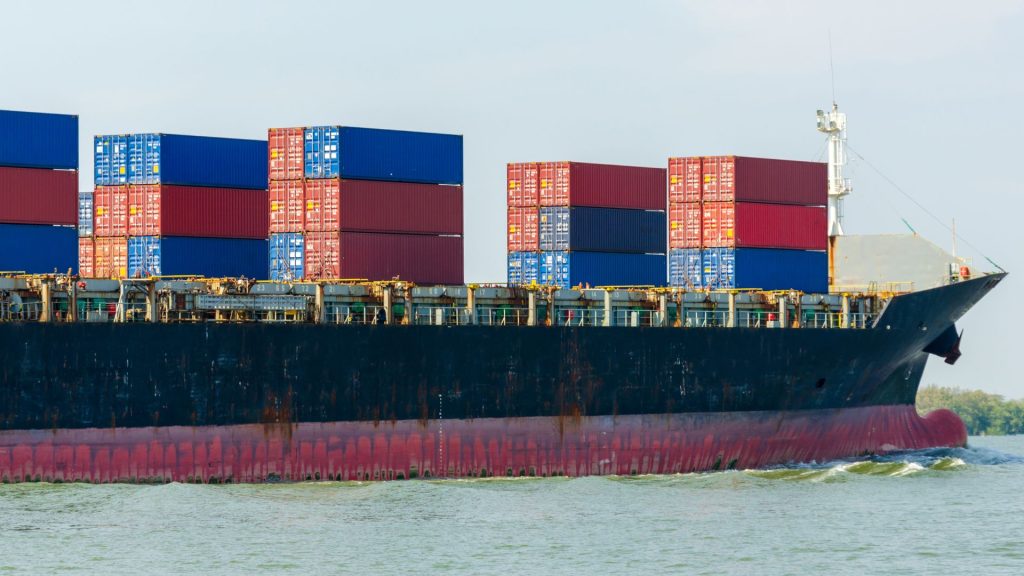Exploiting global trade has become an increasingly concerning issue in today’s interconnected world. Unscrupulous businesses and individuals leverage gaps in international trade regulations, tariff discrepancies, and varying standards across countries to gain undue advantages. This not only undermines fair competition but also puts consumers at risk by flooding markets with substandard or counterfeit products.
Furthermore, it erodes trust in global trade systems, hampering economic growth and collaboration between nations. It’s imperative that international regulatory bodies work cohesively to address these loopholes and ensure a level playing field for all.
Money launderers find different avenues and methods to launder money and hide from the attention of law enforcement authorities. Trade-based transactions or business activities are one of the important avenues that criminals explore, where they establish businesses and start trading different goods, including furniture, precious stones, raw materials, vehicles, cars, building materials, etc. These businesses utilize illegal means or methods to transform, transfer or receive money from other criminals or support groups.
These trade-based money laundering methods are listed independently. In practice, criminals, such as money launderers, may mix these methods as one process or scheme to complicate the chain of trade transactions. For example, more sophisticated money laundering networks may use multiple invoices in connection with phantom shipping. Here, one shipment may involve the movement of actual goods to create a fake identity or to test the customs compliance processes, with subsequent trading of goods using multiple invoices for phantom shipments, utilizing as the cover of the transfer of money.
Exploiting Global Trade
The following are some methods criminals and money launderers explore, such as trade-based transactions, including exports, for money laundering.
Over- and Under-Invoicing of Goods and Services
The key element of over- or under-invoicing goods and services is the price misrepresentation to transfer the value. By misrepresenting the price of traded goods or services, the money launderers hide the true value of the goods or services and succeed in transferring a higher or lower amount of funds from one location to another. Criminals misrepresent the details of goods or services, trick financial institutions, and ultimately succeed in money laundering.
Over- and Short-Shipping of Goods and Services
Over- and short-shipping works through the difference in the invoiced quantity of goods and the quantity of goods that are shipped, including ‘phantom shipments’. In most cases, no product is moved at all. However, the funds are transferred or received by the criminals against the non-traded product declared on the papers.
Multiple Invoicing of Goods and Services
In the case of multiple invoicing, the existing documentation is reused by the criminals to justify multiple payments for the same shipment of goods or delivery of services. Criminals or terrorist financiers exploit multiple financial institutions by reusing the documents, making it difficult for one institution to identify the anomalies or multiple invoicing tricks.
Falsely described Goods and Services
In this method, the criminals or money launderers misrepresent the quality or type of a good or service, such as they show the shipment of a relatively inexpensive good and describing the shipped goods as a very expensive item or they may show the entirely different item shipped, to justify the value movement. For example, the shipment may actually involve goods worth 10,000 US dollars, but the money launderers declare the goods worth 100,000 US dollars to transfer or receive the higher value or funds.
Shell Companies
The exploitation of shell companies became a key part of many different types of trade-based money laundering (TBML) activities, as well as facilitating a significant number of predicate offenses.
While there is often a significant intersection between TBML and Terrorist Financing (TF) schemes and the exploitation of shell or front companies, they do not feature in all TBML/TF schemes, especially those involving the exploitation of supply chains. Some criminals and terrorists establish their TBML schemes around the shell companies and use them as part of the financial system, and they hide the identity of the ultimate beneficial owner. The front companies offer convenient trade business opportunities and integrate physical cash into a business to exploit banking channels and move illegal funds in different jurisdictions.
Freight Forwarders
Freight forwarders play a very important role in facilitating the shipment of goods, by helping the buyers and sellers. They navigate the complex customs and shipping routines and processes. They act as subject matter experts in determining the efficient transportation modes to move the goods, which can incorporate multiple shipments.
The freight forwarders may access and review relevant trade documentation which might contain indications of TBML, including:
Commercial invoices: The invoice must be authentic. Although there is no standardized format, the invoice must include the parties involved in the trade transaction, the goods involved and transported, and the recognized commodity description and codes. A commercial invoice should be appropriately authorized.
The bill of lading: It is a document that is issued by a carrier, or an agent, to acknowledge receipt of cargo for shipment. It serves as a conclusive receipt, acknowledging goods have been loaded. It contains the terms of the contract and also serves as a document of title to the goods. It confers title over the goods to the consignee whose name is mentioned or the lawful holder.
Custom Brokers
The customs brokers, affiliated with freight forwarders or independents, do the import and export of goods, and they facilitate the clearance of goods through customs. The customs broker may work with importers to check whether the required trade documentation or licenses are arranged, and they ensure the payment of correct duties and taxes.
The services of custom brokers may include any or all of the following:
Checking the classification and valuation of goods, ensuring the right commodity codes are used.
Liaising with government agencies and customs authorities.
Advising on any necessary licenses for the import of restricted or hazardous goods.
Helping arrange correct payment of import duties and VAT as necessary
Black Market Trades
Goods and services are traded on the black market to evade any number of legal requirements.
Final Thoughts
Trade-based money laundering (TBML) has become an increasingly sophisticated method employed by criminals to launder illicit funds. Using legitimate business avenues, such as over- or under-invoicing, phantom shipping, and multiple invoicing, they obscure the true nature of transactions to move large sums of money covertly. This is further facilitated by the misuse of documents like commercial invoices and bills of lading, often in conjunction with services provided by freight forwarders and customs brokers.
Shell companies, which can hide the real beneficiaries, add another layer of deception, making detection even harder. While some TBML methods intersect with terrorist financing, not all do. Moreover, black market trades enable illicit activities to continue beyond the purview of law enforcement. The increasing complexity of these schemes demonstrates the need for heightened diligence and advanced tools in combatting money laundering.








